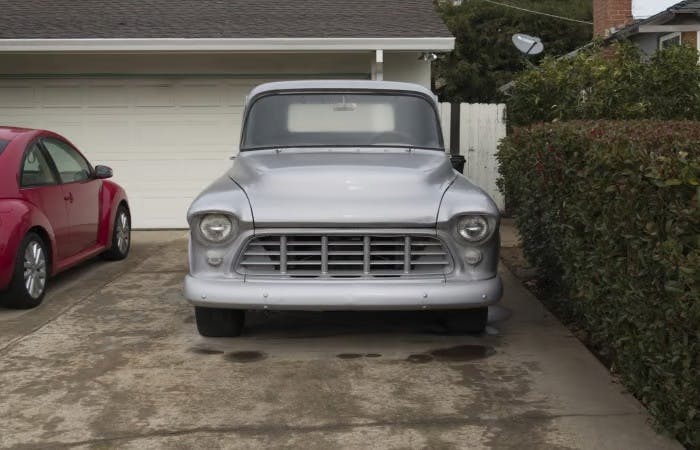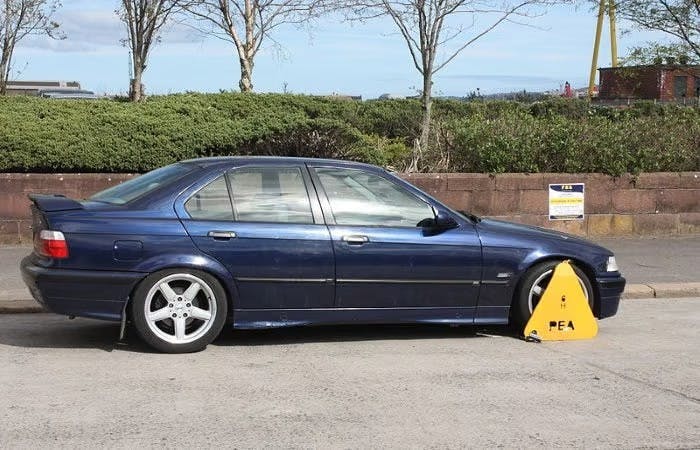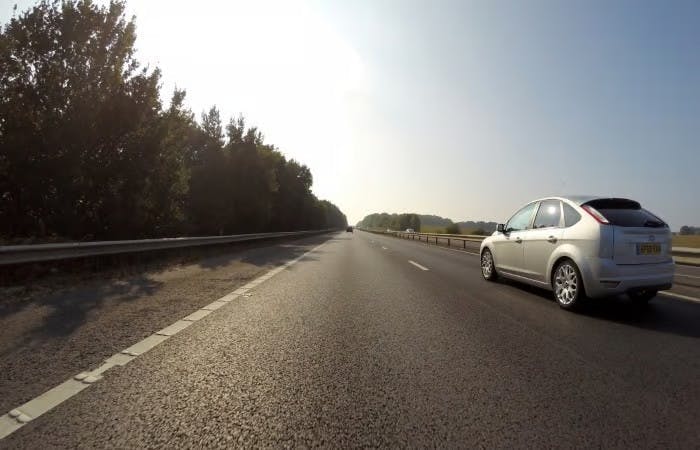
Buying and maintaining a vehicle can be incredibly costly. It's why so many new drivers take a break from driving altogether. After all, between insurance, taxes and fuel, there's a pretty hefty price tag attached to owning a vehicle. If you're using your car, of course, it's a price tag worth paying. However, if your car's been collecting dust in the garage, then you're just haemorrhaging money for no reason. Instead, you should look into declaring your car “off road” so you don't have to insure or tax it. To do this, you'll have to apply for a Statutory Off Road Notification (SORN).
We're going to take you through everything you could possibly need to know about the Statutory Off Road Notification (SORN)—from what it is to why you might need it to how exactly you might go about registering for one.
What is a SORN?
As we've already mentioned, SORN stands for Statutory Off Road Notification. It is essentially an official declaration to the DVLA that you're no longer using your vehicle on public roads. All vehicles on public roads must be taxed and insured—applying for a SORN is the only way in which you will no longer need to pay for tax or insurance. Of course, once you register your vehicle as off road, you cannot use it or keep it on public roads. Yep, that's right—you'll have to keep your vehicle stored in your garage, on your driveway or on private land.
Why would I need a SORN?
Drivers have plenty of reasons as to why they might want to apply for a SORN for their vehicle. The most obvious one, of course, is that they're simply not using their vehicle anymore. If that's the case, there's absolutely no point in continuing to pay for its tax and insurance, is there? Additional reasons might include:
- If your vehicle isn't insured. If you're having a bit of a kerfuffle with renewing your insurance policy, even if it's just for a couple of weeks, you'll need a SORN. Otherwise, you could be fined for having an uninsured vehicle—even if you're not driving it!
- If you've bought a vehicle you don't intend to drive. If you're buying a vehicle that you know you won't be driving just yet, then you should apply for a SORN so that you're not wasting money on tax or insurance.
- If you're taking an extended break from driving. If you're heading to university or taking a long holiday—and don't intend on using your vehicle—then getting a SORN is your best option.
- If your car has failed an MOT. If your vehicle needs to undergo some serious repairs, or you've decided to fix it up yourself, then it's obviously going to be off the road for some time.
- If you're taking parts from your vehicle before scrapping it. Your vehicle needs to be declared off the road before you can take parts from it for repair of another vehicle, for example.
Once your vehicle has a SORN in place, then you will not be able to drive it on public roads, unless you're driving it to and from a pre-booked MOT appointment.
What happens if I fail to declare my car off road?

Before you start thinking that you could just get away with not paying tax and insurance as long as you hide your vehicle away in your garage, we'd suggest you hold your horses—it's really not that simple.
The DVLA and Motor Insurance Database can look at their records and corresponding databases to identify uninsured drivers that haven't applied for a SORN. According to Admiral, figures in 2018 “revealed that warnings are being issued to around 3,000 uninsured drivers every day in the UK.” Indeed, you could get automatically fined £80 for not having a SORN. If you're caught with an uninsured vehicle, you could end up:
- Needing to pay a fixed penalty of £100
- Having your vehicle clamped, impounded or destroyed
- Facing prosecution and a potential maximum fine of £1,000
And that's just the tip of the iceberg. If you're actually caught driving without insurance, you could get a fixed penalty of £300 and 6 penalty points. If you end up in court, you could be slapped with an unlimited fine and disqualification from driving altogether! It doesn't cost you a single penny to apply for a SORN for your vehicle, so you've really got nothing to lose if you actually need one.
Once you've got a SORN for your vehicle, you can only drive it on a public road to go to and from a pre-booked MOT appointment. Be aware that if you attempt to do so outside of this, then you could end up in court and fined up to £2,500.
How do I register my car off road?
So, you've come to the conclusion that you need to declare your vehicle as off road. What's next? Well, fortunately, you don't have to deal with mountains of paperwork and endless phone calls to apply for a SORN. In fact, the DVLA have made the process pretty straightforward. You can apply for a SORN online, over the phone or by post—the process will differ depending on your chosen method.
Let's take a closer look, shall we?
1. Online
To apply for a SORN online, all you've got to do is follow the directions outlined in the online SORN registration form. To fill out this form, you will need a reference number from either a V5C or V11 form, depending on when you want your SORN to start:
- If you want it to begin immediately, you will need to find the 11-digit number on your vehicle log book (V5C).
- If you'd prefer it to begin on the first day of next month, you'll need the 16-digit number on your vehicle tax reminder letter (V11). Please note: you can only use this 16-digit number once.
Unfortunately, if the vehicle you're trying to register as off the road isn't registered under your name, then you will have to inform the DVLA by post instead.
2. Over the phone
As long as you're the vehicle's registered keeper, you should have absolutely no problem with applying for a SORN over the phone. Simply use the details below to get in touch with the DVLA:
DVLA Vehicle Service
Telephone: 0300 123 4321
24-hour service
3. By post
In order to apply for a SORN by post, you will need to print out the V890 application form and fill it in. You will be allowed to provide a date at which you want to take your vehicle off the road—you can choose any day either:
- This month or last month: be aware that you will not get a vehicle tax refund for past dates.
- Next month or the month after: you will need to include a letter that states why you can't send the form nearer the time.
If your vehicle isn't registered in your name, then you will need to fill in the appropriate part of your log book and send it, along with the V890 form, to the DVLA. Can't find your log book? You'll need to apply for a new one. Don't worry—all you've got to do is download the application for a new log book, fill it in and send it, along with your V890 form, to the DVLA. You will need to pay £25 for the new log book.
Send your application form to this address:
DVLA
Swansea
SA99 1AR
When does it take effect?
As you've probably gathered, it all depends on which application process you chose. If you applied using your V5C 11-digit reference number (online or over the phone), then your SORN will come into effect immediately. If you used your V11 16-digit number (online or over the phone), then it will be on the first day of the next month. Those that apply by post will have their SORN begin at a date of their choosing.
Once you have your SORN, it will remain valid until your vehicle is taxed, sold, scrapped or exported. Not sure if your vehicle has a SORN? Use the DVLA's SORN checker.
How do I get my car back on the road?

Once you've decided that you no longer need a SORN for your vehicle, there are a few steps you need to take before you can take it out onto public roads again. Don't worry—they're pretty straightforward, and shouldn't take you too long to sort out.
1. Tax your vehicle
To actually cancel your SORN, all you've got to do is start taxing your vehicle again. Yep—it's that easy. You can start taxing your vehicle online, over the phone with the DVLA or at your local post office. In order to start the process, however, you will need a reference number from:
- A tax reminder letter (V11) from the DVLA
- Your vehicle log book (V5C)
- A green 'new keeper' slip from a recently purchased log book
Once you've got this information close at hand, you can pay online with the DVLA's online vehicle tax form, or over the phone on 0300 123 4321. Alternatively, you can pay at a Post Office that accepts vehicle tax applications. You will have to pay by debit or credit card, or by Direct Debit.
Officially exempt from vehicle tax? Even if you don't have to pay anything, the DVLA still requires you tax your vehicle to remove the SORN.
2. Sort out insurance
You don't just need to make sure your vehicle is taxed—you need to make sure that you've got an insurance policy in place. We cannot stress the importance of car insurance enough. All vehicles on the road need to be insured—third party insurance is the legal minimum. With it, you're covered if you end up in an accident that causes injury to a third party and their vehicle, animals or property.
Need some guidance or tips for your vehicle insurance? Check out our top guides:
- Black box (telematics) insurance – everything you need to know
- Young driver insurance – everything you need to know
3. Make sure your MOT is up-to-date
Finally, the last step you need to take is to check that you have a valid MOT certificate. If your vehicle doesn't have one, then you should book an MOT appointment before you cancel your SORN. Remember—you can travel to and from a pre-booked MOT appointment even with a SORN in place. If you're caught driving a vehicle without a valid MOT, you could be fined up to £1,000!
Not sure if your vehicle needs an MOT or not? Use the DVLA's MOT status tool. If your MOT has run out, you need to book an MOT as soon as possible.
FAQs
1. Will my SORN need renewing?
Nope! Once you've declared your vehicle as off road, it will remain that way until you start paying your vehicle tax and insurance again.
2. Can I still drive my car for an MOT if I have a SORN?
Yep! It's actually the only time you're allowed to drive your car with a SORN in place. You will need to book your MOT appointment beforehand—that way, you'll have proof if you end up pulled over for any reason. If you attempt to drive for any other purpose, you could end up with a fine of £2,500.
3. What happens if I buy a car that has a SORN?
A SORN doesn't transfer from one owner to another. If you buy a car and you intend to keep it off the road for a long period of time, then you'll have to apply for your own SORN. If you intend to drive the vehicle straight away, then that's fine—as far as the DVLA's concerned, it's back on the road (as long as it's taxed and insured).
4. Do I need to insure a SORN car?
Whilst you don't technically need to pay insurance for your vehicle once you've got a SORN in place, you might still want some cover whilst it's off road. If that's the case, you might want to check out laid-up insurance policies.
5. Where do I park a SORN car?
Once you've declared your car as off the road, you cannot park it on a public road. You will need to store it in a garage, driveway or on private land. Please be aware that ignoring these rules could result in heavy fines and penalties.
6. What happens to my outstanding car tax or insurance?
If you're officially declared your vehicle as off road, then you no longer have to pay for tax or insurance. If you have any full months of remaining tax, you'll get a refund from the DVLA—this will typically happen within 6 weeks of the DVLA receiving your application. As for your insurance, it will vary depending on your provider and policy—get in touch with your insurer to find out.
7. Am I allowed to tow a SORN vehicle?
Interestingly enough, it depends on your towing method. If you're using an A bar, then your car is technically a trailer, which means it doesn't need to be taxed, insured or have an MOT. If you're towing it by rope, however, then your SORN vehicle needs to be taxed, insured and MOT'd.
8. When will I get confirmation of my SORN?
It will take up to four weeks for the DVLA to confirm the SORN status of your vehicle once they've received your application. If you don't hear anything from them after this time, we'd advise you get in touch with them.
Subscribe for driving advice, offers & more
We'd love to let you know about our courses, news and offers via email. You may unsubscribe at any time.
Star Genie Limited trading as PassMeFast. Company number 10093359
Copyright © 2024 owned by Star Genie Limited
PassMeFast, Blue Tower, MediaCityUK, Salford, M50 2ST

